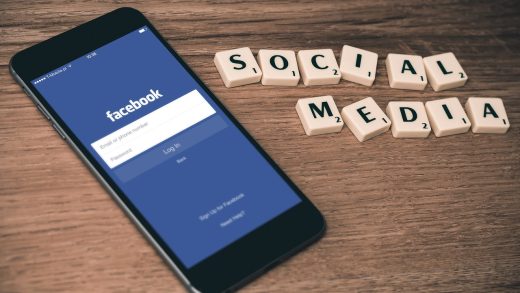The world of literature is like a vast ocean, teeming with ideas and emotions that shape our understanding of life. Artificial intelligence has begun to dive into this ocean, offering insights into how literature influences our culture, society, and personal lives. By analysing vast amounts of text, AI can highlight patterns and themes that resonate through time, revealing the profound impact literature has on human experience.
One of the most striking observations is how literature acts as a cultural mirror. It reflects our values, struggles, and triumphs, often challenging the status quo. For instance, works like George Orwell’s “1984” or Harper Lee’s “To Kill a Mockingbird” not only entertain but also provoke critical discussions about social justice and human rights. This reflective quality of literature encourages readers to engage with pressing societal issues, fostering a sense of awareness and responsibility.
Moreover, literature goes beyond mere reflection; it serves as a powerful tool for empathy. Through storytelling, readers are transported into the lives of diverse characters, experiencing their joys and sorrows. This ability to inhabit another’s perspective promotes understanding across cultural divides. As AI analyses reader responses, it becomes clear that narratives can bridge gaps, fostering connections among individuals from vastly different backgrounds.
Furthermore, the psychological benefits of reading are well-documented. Engaging with literature can significantly reduce stress and enhance emotional intelligence. Research indicates that reading fiction, in particular, allows individuals to navigate complex emotions and develop a deeper understanding of themselves and others. The act of reading becomes a form of therapy, nurturing mental resilience and well-being.
As we explore the intersection of technology and literature, it is evident that digital platforms are revolutionising access to literary works. E-books and audiobooks are making literature more inclusive, allowing a broader audience to engage with texts. This shift is not just about convenience; it’s about ensuring that stories are accessible to everyone, regardless of their circumstances.
Lastly, the role of AI in literary creation is an exciting frontier. Authors are now utilising AI tools to enhance their writing processes, leading to innovative storytelling techniques. This collaboration between human creativity and artificial intelligence promises to reshape the literary landscape, opening new avenues for expression and engagement.
In conclusion, the impact of literature, as revealed through AI analysis, is profound and multifaceted. It reflects societal values, fosters empathy, supports mental health, shapes identities, and evolves with technological advancements. As we continue to explore this dynamic relationship, the future of literature appears bright, filled with endless possibilities.
The Role of Literature in Society
This article explores the transformative effects of literature through the lens of artificial intelligence, examining its influence on culture, society, and individual lives.
Literature serves as a powerful mirror to society, reflecting cultural norms and challenging societal issues. It does more than just entertain; it provokes thought and encourages dialogue. Through the ages, literature has been a vehicle for social change, often igniting movements and inspiring individuals to rethink their perspectives. For instance, works like Harper Lee’s “To Kill a Mockingbird” and George Orwell’s “1984” have not only captivated readers but have also sparked discussions on justice and freedom.
Moreover, literature shapes social consciousness by presenting narratives that resonate with the human experience. It has the unique ability to bring to light the struggles of various communities, thus fostering a greater understanding among readers. Consider the impact of Chimamanda Ngozi Adichie’s stories, which delve into the complexities of identity and culture. Through her work, she challenges stereotypes and encourages readers to engage with diverse perspectives.
In today’s digital age, the accessibility of literature has expanded significantly. With platforms like Goodreads and Audible, readers can discover new voices and genres, leading to a more inclusive literary landscape. This evolution is crucial, as it allows literature to reach wider audiences, thereby enhancing its role in shaping societal values.
In summary, literature is not merely an art form; it is a catalyst for change. It has the power to challenge the status quo, foster empathy, and bridge gaps between cultures. As we continue to explore the impact of literature on society, it is essential to recognise its potential to influence public discourse and inspire future generations.

Literature as a Tool for Empathy
Literature has an incredible power to connect us, serving as a bridge between diverse cultures and experiences. When we immerse ourselves in stories, we step into the shoes of characters who are often vastly different from us. This act of reading allows us to explore the depths of human emotion and understanding, fostering empathy in a way that few other mediums can. Have you ever found yourself crying over a character’s struggle or laughing at their triumphs? This is the magic of literature—it transcends boundaries and opens our hearts.
Through narratives, we encounter lives shaped by circumstances we may never experience ourselves. For instance, a novel set in a war-torn country can illuminate the harsh realities faced by its inhabitants, while a tale of love in a conservative society can challenge our perceptions of relationships. By engaging with these stories, we cultivate a deeper understanding of the world around us. Isn’t it fascinating how a simple book can change our outlook on life?
Moreover, literature encourages us to reflect on our own lives. When we read about a character’s struggles with identity or belonging, we often find parallels in our own experiences. This reflection can lead to profound personal growth. According to a study published in the journal Psychological Science, reading fiction significantly enhances our ability to empathise with others, making us more attuned to their feelings and perspectives.
In essence, literature is not merely an escape; it is a powerful tool for building empathy. It allows us to explore complex emotions and situations, fostering a greater appreciation for the human experience. As we navigate through these stories, we learn that while our backgrounds may differ, our emotions and struggles often resonate on a universal level. So, the next time you pick up a book, remember that you’re not just reading—you’re embarking on a journey that could change the way you see the world.
The Psychological Benefits of Reading
This article explores the transformative effects of literature through the lens of artificial intelligence, examining its influence on culture, society, and individual lives.
Literature serves as a mirror to society, reflecting cultural norms and challenging societal issues. This section delves into how literature shapes social consciousness and influences public discourse.
Through storytelling, literature fosters empathy by allowing readers to experience diverse perspectives. This section discusses how literature can bridge gaps between different cultures and promote understanding.
Engaging with literature is not just a pastime; it’s a profound way to enhance our mental well-being. Research has shown that reading fiction can significantly reduce stress levels. Imagine diving into a gripping novel, where your worries melt away as you get lost in another world. Isn’t it fascinating how a simple book can transport you to places you’ve never been?
Moreover, reading can improve emotional intelligence. When we immerse ourselves in the thoughts and feelings of characters, we develop a better understanding of our own emotions and those of others. Here are some psychological benefits of reading:
- Stress Reduction: Reading can lower cortisol levels, helping you to relax.
- Enhanced Empathy: By understanding characters’ motivations and emotions, readers can cultivate a deeper sense of empathy.
- Improved Focus: Regular reading helps improve concentration and attention span.
- Boosted Creativity: Engaging with diverse narratives stimulates imaginative thinking.
Additionally, a study by the National Institutes of Health found that individuals who read regularly tend to have better mental resilience. This correlation highlights the importance of incorporating reading into our daily routines, as it can serve as a powerful tool for maintaining mental health.
While both genres offer unique benefits, fiction particularly enhances empathy and understanding of complex human emotions compared to non-fiction. It’s through these fictional narratives that we can explore the depths of human experience, allowing us to connect with others on a more profound level.
Exploring the correlation between reading habits and mental health, it becomes clear that regular engagement with literature can lead to improved mental resilience. Those who make reading a habit often report better coping mechanisms in the face of stress.
Literature plays a crucial role in shaping personal and cultural identities. This section explores how narratives contribute to self-perception and societal belonging.
The intersection of technology and literature is reshaping how stories are told and consumed. This section examines the impact of digital platforms on literary accessibility and engagement.
Digital platforms have revolutionised access to literature, making it more inclusive. This subsection discusses how e-books and audiobooks are expanding readership among diverse populations.
Artificial intelligence is increasingly being utilised in the creative process. This subsection explores how AI tools are being used by authors and their implications for the future of literature.
Fiction vs. Non-Fiction
When it comes to the literary world, the debate between fiction and non-fiction is as old as time itself. Both genres offer unique insights and experiences, yet they do so in fundamentally different ways. Fiction, with its imaginative narratives, allows readers to escape into worlds crafted by the author’s creativity. It often evokes emotions and empathy by presenting complex characters and situations that mirror real-life dilemmas. In contrast, non-fiction serves as a vessel for factual information, educating readers on various subjects ranging from history to science, and even personal development.
One of the most compelling reasons to delve into fiction is its ability to enhance empathy. Research suggests that engaging with fictional narratives can improve our understanding of others’ emotions and experiences. For instance, a study published in the journal Cognition found that readers of literary fiction scored higher on tests measuring empathy compared to those who read non-fiction. This is because fiction often places readers in the shoes of diverse characters, allowing them to experience life from different perspectives.
On the other hand, non-fiction plays a crucial role in shaping our knowledge and understanding of the world. It provides a factual basis for understanding complex issues, such as social justice, environmental challenges, and historical events. Non-fiction books often serve as a powerful tool for advocacy and awareness, inspiring readers to engage with real-world problems. For example, works like “Sapiens” by Yuval Noah Harari or “Educated” by Tara Westover not only inform but also challenge societal norms and encourage critical thinking.
Ultimately, the choice between fiction and non-fiction depends on what you seek from your reading experience. Whether you wish to escape into the realms of fantasy or explore the depths of reality, both genres are invaluable in their own right. So, why not indulge in both? After all, a well-rounded reader is one who embraces the full spectrum of literary offerings!
Reading Habits and Mental Health
Reading is not just a pastime; it’s a powerful tool that can significantly enhance our mental health. Numerous studies suggest that individuals who engage in regular reading habits experience a range of psychological benefits. For instance, immersing oneself in a good book can act as a form of escapism, providing a much-needed break from the stresses of daily life. Have you ever found yourself completely absorbed in a story, forgetting your worries for a while? This phenomenon is often referred to as the ‘transportation effect’, where readers become so engrossed that they lose track of time and their surroundings.
Moreover, literature can serve as a safe space for exploring complex emotions. By navigating the lives of diverse characters, readers can develop greater emotional intelligence and understanding. Research indicates that reading fiction in particular is linked to improved empathy and interpersonal skills. A study published in the journal Psychological Science found that participants who read literary fiction scored higher on empathy tests compared to those who read non-fiction or nothing at all.
To illustrate the connection between reading habits and mental health, consider the following table:
| Reading Habit | Mental Health Benefit |
|---|---|
| Daily Reading | Reduced stress and anxiety |
| Reading Fiction | Enhanced empathy and social perception |
| Reading Non-Fiction | Increased knowledge and cognitive function |
In addition, the act of reading can foster a sense of community and belonging. Joining a book club or participating in online reading forums allows individuals to connect with others who share similar interests, which can combat feelings of loneliness. So, whether you prefer curling up with a novel or diving into a gripping non-fiction piece, remember that your reading habits can play a crucial role in nurturing your mental well-being. Embrace the power of literature, and let it guide you towards a healthier mind!
Literature’s Influence on Identity
Literature is not just a collection of words on a page; it is a powerful force that shapes our identity and influences how we perceive ourselves and others. Through the narratives we engage with, we find pieces of ourselves reflected back at us, often leading to profound self-discovery. Imagine reading a character’s journey and suddenly realising that their struggles mirror your own; this is the magic of literature. It allows us to explore complex themes of belonging, culture, and personal growth in ways that resonate deeply within us.
Moreover, literature serves as a bridge between different cultures, allowing us to step into the shoes of others and view the world through their eyes. This is particularly important in today’s globalised society, where understanding and empathy are crucial. By reading diverse voices, we can learn about traditions, values, and experiences that differ from our own, which can significantly enrich our understanding of our identity and place in the world.
Research indicates that narratives play a vital role in the formation of personal and cultural identities. For instance, a study published in the Journal of Civil Society highlights how literature can foster a sense of community among readers. Through shared stories, individuals can connect over common experiences, thereby strengthening their sense of belonging. This connection can be particularly empowering for marginalized groups, as it provides a platform for their voices to be heard and validated.
In conclusion, literature is a dynamic tool that not only reflects our identities but also shapes them. It challenges us to confront our biases and encourages us to embrace the rich tapestry of human experience. As we continue to engage with literature, we can cultivate a deeper understanding of ourselves and the world around us, ultimately leading to a more inclusive society.
Technological Advancements and Literature
This article explores the transformative effects of literature through the lens of artificial intelligence, examining its influence on culture, society, and individual lives.
In today’s fast-paced world, technological advancements are revolutionising the way we interact with literature. Gone are the days when a book was merely a physical object; now, literature is accessible at the touch of a button. Digital platforms have not only expanded the availability of texts but have also transformed the reading experience itself. Can you imagine having a library at your fingertips? This is the reality we live in!
With the rise of e-books and audiobooks, readers can enjoy literature on the go, making it easier to incorporate reading into their busy lives. According to a study by the Pew Research Center, over 25% of adults in the UK now prefer reading e-books over traditional print. This shift has profound implications for literary engagement and accessibility.
Moreover, the emergence of artificial intelligence in the literary field is reshaping how stories are crafted. Authors are now using AI tools to enhance their writing processes, generating ideas and even assisting in editing. This fusion of technology and creativity raises fascinating questions about the future of storytelling. Will AI become a co-author, or will it merely serve as a tool? The possibilities are endless!
To illustrate the impact of technology on literature, consider the following table:
| Technological Advancement | Impact on Literature |
|---|---|
| E-books | Increased accessibility and portability |
| Audiobooks | Enhanced engagement for auditory learners |
| AI Writing Tools | Streamlined writing and editing processes |
| Online Platforms | Broader audience reach and community building |
In conclusion, the intersection of technology and literature is not just a trend; it represents a fundamental shift in how we create, consume, and appreciate literary works. As we embrace these changes, we must also consider the implications for the future of literature and the role it plays in our lives.
Digital Literature and Accessibility
The advent of digital literature has fundamentally altered the landscape of reading, making it more accessible than ever before. With the rise of e-books and audiobooks, literature is no longer confined to the traditional printed page. Instead, it has embraced technology, paving the way for a more inclusive literary world. Imagine being able to carry an entire library in your pocket! This transformation is not just a matter of convenience; it holds profound implications for how we engage with stories.
Digital platforms have opened the doors to a wider audience, allowing individuals from various backgrounds and abilities to connect with literature. For instance, those with visual impairments can now enjoy books through audiobooks or screen-reading technologies, while non-native speakers can access a plethora of translated works at the click of a button. This inclusivity is crucial in fostering a richer cultural exchange, as it allows diverse voices to be heard and appreciated.
Moreover, the flexibility of digital formats means that literature can reach people who may have previously found it challenging to engage with traditional books. Consider the following benefits of digital literature:
- Cost-effectiveness: E-books are often cheaper than their printed counterparts, making literature more affordable.
- Portability: Readers can access thousands of titles on a single device, eliminating the need for physical storage.
- Instant access: Digital literature can be downloaded instantly, providing immediate gratification.
- Interactive features: Many digital platforms offer features like adjustable fonts, background colours, and note-taking capabilities.
As we delve deeper into this digital age, it’s essential to consider the implications of these advancements. How will they shape the future of literature? Will AI-generated stories become a staple in our reading diets? The answers remain to be seen, but one thing is certain: the accessibility brought by digital literature is a game-changer that will continue to redefine our relationship with the written word.
For more insights on the impact of technology on literature, check out Digital Reading.
AI in Literary Creation
This article explores the transformative effects of literature through the lens of artificial intelligence, examining its influence on culture, society, and individual lives.
Literature serves as a mirror to society, reflecting cultural norms and challenging societal issues. This section delves into how literature shapes social consciousness and influences public discourse.
Through storytelling, literature fosters empathy by allowing readers to experience diverse perspectives. This section discusses how literature can bridge gaps between different cultures and promote understanding.
Engaging with literature can enhance mental well-being. This subsection highlights research on how reading fiction can reduce stress and improve emotional intelligence.
While both genres offer unique benefits, this section examines how fiction particularly enhances empathy and understanding of complex human emotions compared to non-fiction.
Exploring the correlation between reading habits and mental health, this subsection discusses how regular engagement with literature can lead to improved mental resilience.
Literature plays a crucial role in shaping personal and cultural identities. This section explores how narratives contribute to self-perception and societal belonging.
The intersection of technology and literature is reshaping how stories are told and consumed. This section examines the impact of digital platforms on literary accessibility and engagement.
Digital platforms have revolutionised access to literature, making it more inclusive. This subsection discusses how e-books and audiobooks are expanding readership among diverse populations.
Artificial intelligence is increasingly being utilised in the creative process, transforming the landscape of literature as we know it. Imagine a world where machines collaborate with writers to generate stories that captivate the human experience! AI tools are not just assisting authors; they are becoming co-creators, offering suggestions, generating ideas, and even drafting entire chapters.
For instance, platforms like OpenAI have developed models that can produce coherent narratives based on minimal prompts. This has led to fascinating discussions about the authorship and the definition of creativity itself. Can a story birthed from an algorithm evoke the same emotional response as one crafted by a human hand?
Moreover, AI is being used to analyse existing literary works, providing insights into trends, styles, and themes that might otherwise go unnoticed. By examining large datasets of texts, AI can identify patterns that inform not only new works but also the evolution of literary genres.
However, this integration of AI in literary creation raises important questions:
- What happens to the value of creativity when machines can produce art?
- Will readers connect with stories generated by algorithms?
- How do we define the role of the author in an era of AI-assisted writing?
As we stand on the brink of this new frontier, it’s clear that AI’s role in literature is both exciting and complex, challenging our perceptions of authorship and creativity.
Frequently Asked Questions
- How does literature impact society?
Literature acts as a mirror, reflecting societal norms and bringing attention to pressing issues. It shapes social consciousness by influencing public discourse and encouraging critical thinking about cultural values.
- Can reading literature really foster empathy?
Absolutely! Engaging with diverse narratives allows readers to step into the shoes of others, bridging cultural gaps and promoting understanding. It’s like taking a journey without leaving your chair!
- What are the psychological benefits of reading?
Reading, especially fiction, can significantly reduce stress and enhance emotional intelligence. It’s a wonderful escape that not only entertains but also nurtures mental well-being.
- How do fiction and non-fiction differ in their benefits?
While both genres offer unique insights, fiction is particularly powerful in enhancing empathy and understanding complex emotions, making it a vital tool for personal growth.
- What role does technology play in literature today?
Technology has transformed how we access and consume literature. Digital platforms like e-books and audiobooks have made literature more inclusive, reaching wider audiences than ever before.
- Is AI changing the way literature is created?
Yes, AI is increasingly being used in the creative process, helping authors brainstorm ideas and enhance their storytelling. This innovation is reshaping the future of literature in fascinating ways!


